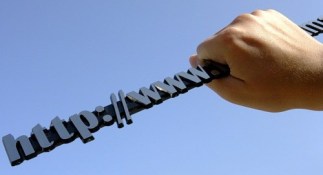I was reading the news a couple of weeks ago and was delighted to learn of a mobile pizza maker. Based in South Wales, they have their van, a wood fired pizza oven and serving counters and were ready to go. Providing wonderful, freshly baked pizza at a wide variety of locations. Parties, gigs, weddings etc.

Who was it? The Welsh Italian Pizza Company, that’s who. So why were they in the news?
For a lack of thought. They simply decided to use the company name as their web domain without looking at it in print first. Say it – the Welsh Italian Pizza Company, sounds OK doesn’t it. Now look at it, as they registered it for their website – https://welshitalianpizza.co.uk
All of a sudden their pizzas look a lot less appetising.
They are not the first to have fallen in to this domain name nightmare. It’s so easy to choose a new domain name, register it, build a website and start the marketing. However, if you don’t look at your domain name in print AND talk about it first you could find your self with something as problematic as the Welsh Italian Pizza’s

Something that looks good, or cool, in print may not sound so smart and something that sounds clever may not look like a wise decision when written down. I think I first thought about it when Phones4U (remember them) started really pushing their mobile phone stores. It looked cool in print, tapping in to the shortening of words that the young had chanced on so that they could make the most of the limited characters allowed in SMS messages (maximum 140 back in the day). It tapped in to the zeitgeist of the time. But imagine trying to communicate the domain name in a phone call. “Yes, just visit our website at ‘phones’ – with a PH not an F – unlike that other giant, Vodafone. 4, that’s the number four, the digit, not the word and U, the letter U not the word, dot com”
All of a sudden, something simple has become quite a mouthful and quite challenging to communicate. Thankfully, Phones4U were able to throw a vast amount of money at advertising, which must have gone someway towards overcoming this challenge. However, it didn’t stop them from falling in to administration in 2014.
Then there’s award winning, London based video maker, producer and director. He called his business Speed of Art, so went for https://speedofart.com. Not quite so clever now, although I don’t think the owner really cares because, the last time I looked, he’d retired. Not only is there a problem with the domain name, but part of his target market was large organisations and many of them would use filters to prevent employees looking at unsuitable websites. The speedo bit would be OK but I don’t think the rest would get through the filter.
There’s a London based Cloud computing accountancy solutions provider caller XERO (pronounced Zero). Yep, looks good in print but in their radio adverts they have to say “visit us at Xero.com with an X”, and then sound out the spelling, “X.E.R.O. dot com”.
There are loads more. However probably the worst was for a Californian therapy/therapist directory because everybody in California needs a therapist, right? But how do you find one? Well, you go the therapist directory website https://therapistfinder.com don’t you? Thankfully, they spotted their error (although not until a couple of years had passed) and changed it to https://therapist-finder.com, although the site is now defunct.
Along the way there have been some excellent spoofs too. There was the Italian Electricity Generating company, PowergenItalia.com. This was claimed to be genuine for a number of years but was eventually shown up to be a spoof. And finally, for now, corporate pen company, Pen Island who sell through https://penisland.net

Domain names like this not only distract from the marketing but also cause SEO confusion because the search engines have to guess the words from the alphabet-soup of letters and yet the solution is simple, use a hyphen or two, and the intention is immediately visible, speed-of-art.com and pen-island.net for example.
The moral of this post is simple, when thinking of a new domain name, make sure that it looks good in print and is easy to communicate verbally and if it’s not, then go back to the drawing board.
I might not be able to undo any domain names that you have registered but I can certainly help with the majority of internet marketing issues that you have, so why not give me a call on 01793 238020 or 07966 547146, drop me a line, andy@enterprise-oms.co.uk or book a free 40 minute consultancy session for an informal and free chat about your issues and how I may be able to help.


 More than 1,000 new domain names could soon be available.
More than 1,000 new domain names could soon be available.